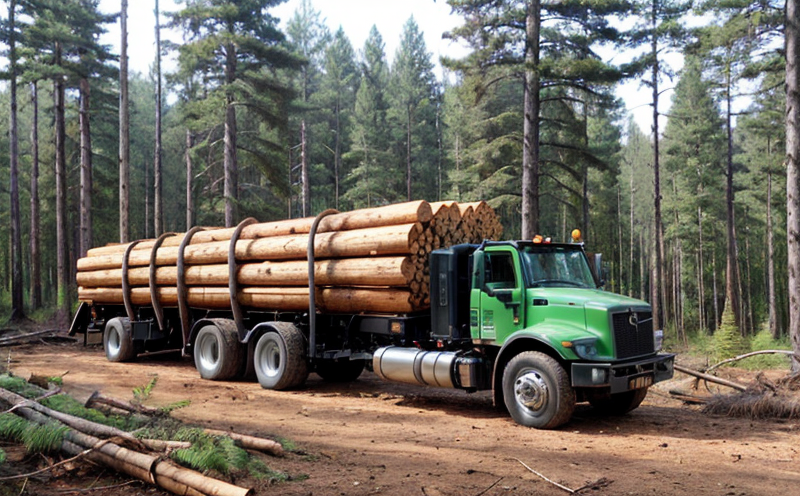Charcoal Moisture Content Testing
The testing of charcoal moisture content is a critical process in ensuring high-quality products that meet stringent industry standards. Charcoal is widely used in various applications, including environmental remediation, industrial filtration, and as an energy source for grilling or heating. The moisture content within the charcoal can significantly impact its performance, shelf life, and effectiveness.
For instance, excessive moisture can lead to mold growth, reduce the fuel efficiency of charcoal briquettes used in grills, and degrade the quality of activated carbon utilized in water purification processes. Conversely, insufficient moisture may cause premature ignition or poor combustion. Therefore, accurate measurement of moisture content is essential for manufacturers and quality control teams.
Standard testing methods such as the oven-drying method (ISO 15803) are commonly employed to determine charcoal’s moisture content. This involves drying a sample of charcoal at a specified temperature until its weight stabilizes, from which the percentage of moisture can be calculated. The accuracy and precision of this test are paramount in ensuring that the product meets customer specifications and regulatory requirements.
Understanding the specific properties of different types of charcoal is also crucial for accurate testing. For example, wood-based charcoals have varying compositions depending on the type of wood used, the degree of pyrolysis, and the subsequent processing steps. These factors influence how quickly or slowly they absorb moisture from their environment, which in turn affects their performance.
Quality managers and compliance officers responsible for monitoring charcoal production processes can benefit greatly from this testing service. By ensuring that each batch of charcoal is within acceptable moisture content limits, they can enhance product quality while also complying with relevant safety regulations. R&D engineers involved in developing new types of charcoal or improving existing products will find this information invaluable as it allows them to fine-tune formulations and manufacturing techniques.
In summary, accurate charcoal moisture content testing plays a vital role across multiple sectors where activated carbon and other forms of charcoal are utilized. From environmental protection agencies monitoring air quality to manufacturers producing high-performance grilling briquettes, precise control over this parameter ensures better outcomes.
Scope and Methodology
| Parameter | Description |
|---|---|
| Sample Preparation | The charcoal sample should be broken into smaller pieces if necessary to ensure uniformity. It must then be dried in an oven at 103°C ±2°C for four hours, after which it is allowed to cool before weighing. |
| Drying Oven Temperature | Temperature must be maintained within the specified range throughout the drying process. |
| Weighing Equipment Accuracy | The balance used should have a precision of at least 0.1 grams. |
| Final Drying | The sample is placed back into the oven until its mass remains constant, indicating complete drying. |
| Calculation Method | The difference between the initial and final weights provides the moisture content percentage. |
This method ensures consistency across batches and adherence to international standards such as ISO 15803. By following these steps meticulously, laboratories can provide reliable results that are essential for maintaining product quality and safety.
Benefits
Accurate charcoal moisture content testing offers several advantages, including enhanced product performance, improved durability, extended shelf life, and compliance with industry standards. Here’s a closer look at some key benefits:
- Improved Product Performance: Ensuring the right moisture balance helps prevent issues like spontaneous ignition or poor burn rates in charcoal briquettes.
- Increased Durability: Properly dried charcoal tends to be more robust and less prone to breaking during handling or usage.
- Extended Shelf Life: Lower moisture levels reduce the risk of spoilage, making stored products last longer.
- Compliance with Regulations: Meeting specific moisture content limits helps avoid penalties associated with non-conformance.
- Better Environmental Impact: In some cases, reducing excess moisture can minimize waste and energy consumption during production processes.
These benefits underscore why investing in high-quality testing services is crucial for businesses operating within the forestry products sector. Reliable data not only improves internal operations but also fosters trust with customers and regulators alike.
Why Choose This Test
Selecting charcoal moisture content testing from our laboratory offers numerous advantages over other options available in the market:
- Accurate Results: Our state-of-the-art facilities use precision equipment to deliver highly accurate measurements.
- Comprehensive Understanding: With years of experience, we offer deep insights into charcoal properties and their impact on moisture content.
- Regulatory Compliance: All our tests are conducted according to recognized international standards like ISO 15803, ensuring that your products meet all necessary requirements.
- Expertise in Sector: Our team includes experts who understand the unique challenges faced by forestry product manufacturers and can provide tailored advice.
- Rapid Turnaround Times: We pride ourselves on delivering quick results without compromising accuracy, allowing you to make informed decisions promptly.
By choosing our laboratory for charcoal moisture content testing, you ensure that your products are of the highest quality and consistently meet industry expectations. This commitment to excellence sets us apart from other providers in this field.





